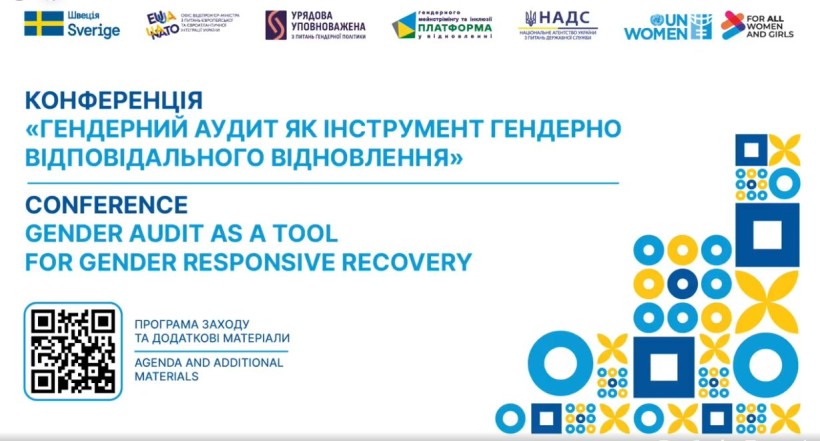
Representatives of the Donetsk Regional State Administration participated in the conference “Gender Audit as a Tool for Gender-Responsible Recovery”, which was held at the initiative of the UN Women structure in Ukraine. The event was organized within the framework of the project “Transformational Approaches to Achieving Gender Equality in Ukraine”, funded by the Government of Sweden, in partnership with the Government Commissioner for Gender Policy, the National Agency of Ukraine for Civil Service and the Office of the Deputy Prime Minister for European and Euro-Atlantic Integration of Ukraine.
The aim of the conference was to discuss practical mechanisms for implementing gender equality in the sphere of public administration, local self-government and post-war reconstruction processes in Ukraine. The participants of the event considered how institutions can measure, strengthen and implement the principles of equal rights and opportunities in their activities, as well as how gender audit contributes to institutional changes and the formation of an inclusive management environment.
The conference program included speeches by representatives of the government and international development partners, the presentation of a step-by-step guide on conducting gender audits, as well as a discussion of successful examples of implementing gender audit recommendations in various institutions. During panel discussions, participants discussed ways to strengthen the capacity of government bodies to integrate a gender approach into policies, programs and projects.
Despite the difficult security conditions and constant challenges caused by the armed aggression of the Russian Federation, the promotion of a policy of equal rights and opportunities for women and men remains one of the key areas of activity of the Donetsk Regional State Administration. Supporting gender-sensitive approaches in governance is in line with Ukraine’s international obligations under UN Security Council Resolution 1325 “Women, Peace, Security” and contributes to strengthening institutional resilience, expanding women’s participation in decision-making processes, and preparing for the future recovery of the region.
The participation of regional representatives in such events is an important step for exchanging experience, expanding expert knowledge, and developing effective approaches to ensuring equal opportunities even in extremely difficult wartime conditions.